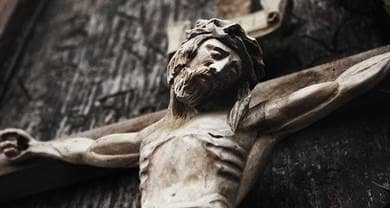- Trending:
- Pope Leo Xiv
- |
- Israel
- |
- Trump
- |
- Social Justice
- |
- Peace
- |
- Love

RELIGION LIBRARY
Roman Catholicism
Leadership
The Catholic Church has a clearly defined hierarchy of clergy members and people in religious life. In Catholic understanding, the clergy are those who have received the sacrament of Holy Orders, which includes deacons, priests, and bishops. Bishops stand at the highest level since they have received the fullness of priestly orders; they can confer all the sacraments on others, including the sacrament of Holy Orders. Catholics believe that through a blessing involving the laying on of hands, the apostles passed their teaching authority on to their successors, who then passed on the authority to their own successors in the same way. This line of blessing and authority continues down to the present-day bishop, who is therefore endowed with apostolic authority.
Despite their title, priests have received only partial priestly orders; they are designated as helpers to the bishops in their teaching and sacramental ministries. The priestly role is sacramental in nature, but priests may not confer Holy Orders, since they do not possess the fullness of apostolic authority. Most parishes have priests as their effective leaders.
Until recently the diaconate (the role of deacon) was simply a step on the way to the priesthood, but Vatican Council II changed that by returning the diaconate to its New Testament roots. In the early Church, deacons were those who ran the churches and helped the bishops; in the very earliest Church, women took on the role of deacons as well as men, although they were later barred from that work. Nowadays deacons are men who usually have jobs outside the Church and are often married, but who also assist priests in parishes. They do not have the breadth of sacramental authority that a priest has - for instance, they cannot preside at Mass - but they can preside at marriages, perform baptisms, and preach.
Despite the wide array of other leadership roles in the Church, up to and including the pope, none of these other leadership roles is sacramental in nature. Bishops hold the highest sacramental role that exists within the Catholic universe. In practical terms, though, cardinals hold greater sway than bishops. Cardinals are traditionally known as the Princes of the Church. They are usually drawn from the ranks of the bishops, and since 1962 it has been Church policy that before their installation as cardinals men must first be consecrated as bishops, although dispensations from this requirement are sometimes given to men who are elevated to the cardinalate late in life. Cardinals generally have official roles of great administrative authority, such as heading areas of the Roman Curia (the Church's government) or leading archdioceses.
Beyond the cardinals is, of course, the pope, the Vicar of Christ on earth, the leader of the world's Catholics. Popes are elected by the College of Cardinals and hold their office for life. The doctrine of papal infallibility, first defined at Vatican Council I in 1870, allows the pope in very particular circumstances to make doctrinal statements that all Catholics are required to believe and adhere to as a matter of conscience. Denying an infallible doctrine is tantamount to removing yourself from communion with the pope, meaning that you cease to be a Catholic. In practice, though, pronouncements declared infallible are exceedingly rare - only twice in the last two centuries have popes made such declarations - and the pronouncements are supposed to represent a belief that is already shared by believers as expressed through the pope as their head.
Together the pope and the bishops constitute the magisterium of the Church. Magisterium (Latin for "teaching") refers to the teaching authority of the Church, and it is the role of the magisterium to define and interpret the Church's doctrines and teach what is needed for salvation. When the pope speaks ex cathedra (literally, "from the chair" in Latin) or when bishops define a doctrine at a general council of the Church (like Vatican I), they are believed to speak infallibly; when the pope or a bishop engages his teaching authority outside these venues, he speaks with great authority but not infallibly.
Study Questions:
1. Who are the clergy within the Catholic Church? Why is apostolic succession important in selecting leaders?
2. What is the role of Catholic priests? Deacons? Cardinals?
3. Who is the pope? What is he responsible for?
4. Describe the relationship between physical location and Truth.










